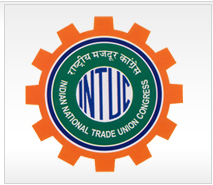Related Research Articles

Social work is an academic discipline and practice-based profession that concerns itself with individuals, families, groups, communities, and society as a whole in an effort to meet basic needs and enhance social functioning, self-determination, collective responsibility, optimal health, and overall well-being. Social functioning is defined as the ability of an individual to perform their social roles within their own self, their immediate social environment, and the society at large. Social work applies areas, such as sociology, psychology, human biology, political science, health, community development, law, and economics, to work with individuals across the lifespan, engage with client systems, conduct assessments, and develop interventions to solve social problems, personal problems, and bring about social change. Social work practice is often divided into micro-work, which involves working directly with individuals or small groups; and macro-work, which involves working with communities, and fostering change on a larger scale through social policy. Starting in the 1980s, a few universities began social work management programmes, to prepare students for the management of social and human service organisations, in addition to classical social work education.

Sennacieca Asocio Tutmonda is an independent worldwide cultural Esperanto association of a general left-wing orientation. Its headquarters are in Paris. According to Jacques Schram, chairman of the Executive Committee, the membership totalled 881 in 2003. In 2006 SAT had 724 members. In 2015-2016 there were 525.

The Swedish Trade Union Confederation, commonly referred to as LO, is a national trade union centre, an umbrella organisation for fourteen Swedish trade unions that organise mainly "blue-collar" workers. The Confederation, which gathers in total about 1.5 million employees out of Sweden's 10 million people population, was founded in 1898 by blue-collar unions on the initiative of the 1897 Scandinavian Labour Congress and the Swedish Social Democratic Party, which almost exclusively was made up by trade unions. In 2019 union density of Swedish blue-collar workers was 60%, a decline by seventeen percentage points since 2006. A strongly contributing factor was the considerably raised fees to union unemployment funds in January 2007 made by the new centre-right government.

Indian National Trade Union Congress (INTUC) is the trade union wing of the Indian National Congress. It was founded on 3 May 1947 and is affiliated with the International Trade Union Confederation. According to provisional statistics from the Ministry of Labour, INTUC had a membership of 33.3 million in 2013, making it the largest Trade Union in India.
Community organization or Community Based Organization refers to organizing aimed at making desired improvements to a community's social health, well-being, and overall functioning. Community organization occurs in geographically, psychosocially, culturally, spiritually, and digitally bounded communities.

The Australian Council of Social Service (ACOSS) is an Australian organisation that advocates for action to reduce poverty and inequality, and is the peak body for the community services sector in Australia. It was formed in 1956.

The Modern Records Centre (MRC) is the specialist archive service of the University of Warwick in Coventry, England, located adjacent to the Central Campus Library. It was established in October 1973 and holds the world's largest archive collection on British industrial relations, as well as archives relating to many other aspects of British social, political and economic history.

The General Federation of Trade Unions (GFTU) is a national trade union centre in the United Kingdom. It has 35 affiliates with a membership of just over 214,000 and describes itself as the "federation for specialist unions".
A Catholic lay association, also referred to as Catholic Congress, is an association of lay Catholics aiming to discuss certain political or social issues from a Catholic perspective.
The Association of Social Workers (ASW) was the main professional body for non-specialised social workers in the United Kingdom. It was established as the British Federation of Social Workers (BFSW) in 1935 and changed its name in 1951. From 1949 it opened its membership to all social workers and from 1951 promoted itself as the body to join to work towards a unified profession.

Carl Wilhelm Severing was a German Social Democrat politician during the Weimar era.
The British Association of Social Workers (BASW) is the largest professional association of registered social workers and qualified care managers in the United Kingdom. The association has a members' code of ethics that outlines best social work practice and works to support social workers and care managers through education and resources. Headquartered in Birmingham, BASW has regional offices in England (Birmingham), Northern Ireland (Belfast), Scotland (Edinburgh), Wales (Cardiff), and North Wales.
The Association of Psychiatric Social Workers (APSW) was the main professional body for social workers looking after the welfare of mentally ill people in the United Kingdom from 1929 to 1970.
The Institute of Medical Social Workers (IMSW) was the main professional body for medical social workers in the United Kingdom. It was formed from several "Almoners" organisations and took this name from 1964 until 1970. Ann Davidson Kelly was its first and only General Secretary.
The Society of Mental Welfare Officers (SMWO) was a professional body for social workers in the United Kingdom. It was established in 1954 by the amalgamation of the National Association of Authorised Officers and the Mental Health Workers' Association.

Les amis du bus des femmes is a French association established in 1990 by former sex workers as a support group for sex workers.
Social care in the United Kingdom is a devolved matter, so England, Northern Ireland, Scotland and Wales each have their own separate systems of private and publicly funded social care. Each country has differing policies, priorities and funding levels which has resulted in a variety of differences existing between the systems.

The Irish Congress of Trade Unions, formed in 1959 by the merger of the Irish Trades Union Congress and the Congress of Irish Unions, is a national trade union centre, the umbrella organisation to which trade unions in both the Republic of Ireland and Northern Ireland affiliate.
Social anarchism is the branch of anarchism that sees individual freedom as interrelated with mutual aid. Social anarchist thought emphasizes community and social equality as complementary to autonomy and personal freedom. It attempts to accomplish this balance through freedom of speech, which is maintained in a decentralized federalism, with freedom of interaction in thought and subsidiarity. Subsidiarity is best defined as "that one should not withdraw from individuals and commit to the community what they can accomplish by their own enterprise and industry" and that "[f]or every social activity ought of its very nature to furnish help to the members of the body social, and never destroy and absorb them", or the slogan "Do not take tools out of people's hands".

The International Workingmen's Association (IWA), often called the First International (1864–1876), was an international organisation which aimed at uniting a variety of different left-wing socialist, communist and anarchist groups and trade unions that were based on the working class and class struggle. It was founded in 1864 in a workmen's meeting held in St. Martin's Hall, London. Its first congress was held in 1866 in Geneva.
References
- ↑ Viviene E. Cree, ed. (2003). Becoming a Social Worker. Routledge. p. 168. ISBN 9781135260620.